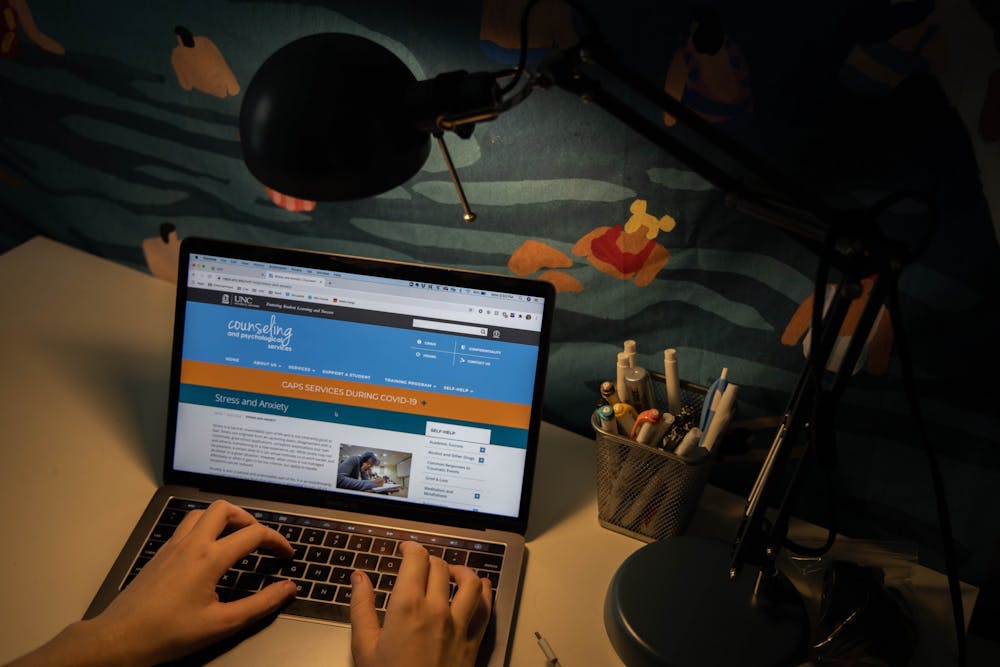Opinion editor Paige Masten spoke with Raleigh Cury and Nikhil Rao, co-facilitators of the UNC-Chapel Hill Mental Health Coalition, about student mental health and the distressing lack of University-funded resources and support for students on campus.
This interview has been edited for content and clarity.
The Daily Tar Heel: So what is the Mental Health Coalition, and what role does it play at UNC?
Raleigh Cury: I was actually the co-director of the inaugural Mental Health Task Force in Student Government for the 2018-2019 school year. My co-director and I, Emma Caponigro, who has since graduated, founded the Mental Health Coalition in the fall of 2018. It was part of former Student Body President Savannah Putnam’s platform.
We founded the coalition to basically gather all mental health organizations on campus. We have administrators there, and it's basically just a space where we stay connected and we stay in touch. This year, Nikhil and I really want to change the structure to make it a little bit less event-based and more substantive. I think it's time that the whole campus community sees the Mental Health Coalition and what it does, and is able to really use the organization as a tool.
Nikhil Rao: I think one of the things we're explicitly looking to transform as we're moving into this year is really using our voice, not only through statements, but also connecting to administrators more and influencing University-level policy in that way. Ultimately, the coalition is a collection of people who really know and understand the mental health landscape at UNC, so we really want to utilize it as a platform to connect people who work in mental health on campus with administrators who can create policy changes.
DTH: The Mental Health Coalition released a statement Friday addressing the mental health climate at UNC. Why did you decide to make that statement?
RC: We found out about the mental health pause scheduled for Friday barely a week in advance, after we'd also lost University Day without the University explicitly acknowledging they were taking away a break — it was kind of mind-boggling to us, to say the least. And it's an optional day, so it's not going to be enforced. And again, it's shifting the burden onto professors to make up this time, since accreditation is evidently an issue. And it also came in the wake of the University denying our request for Election Day off.
So we're just kind of befuddled, I guess, for lack of a better word, and frustrated, too. Nikhil and I have both had so many conversations with administrators and been in so many spaces where students are advocating for better policies, and at the end of the day, mental health is about more than self-care and going to therapy. It's about the well-being of the community, and good policies holistically — and we're not seeing that at all at UNC, which is kind of the impetus for releasing the statement.



